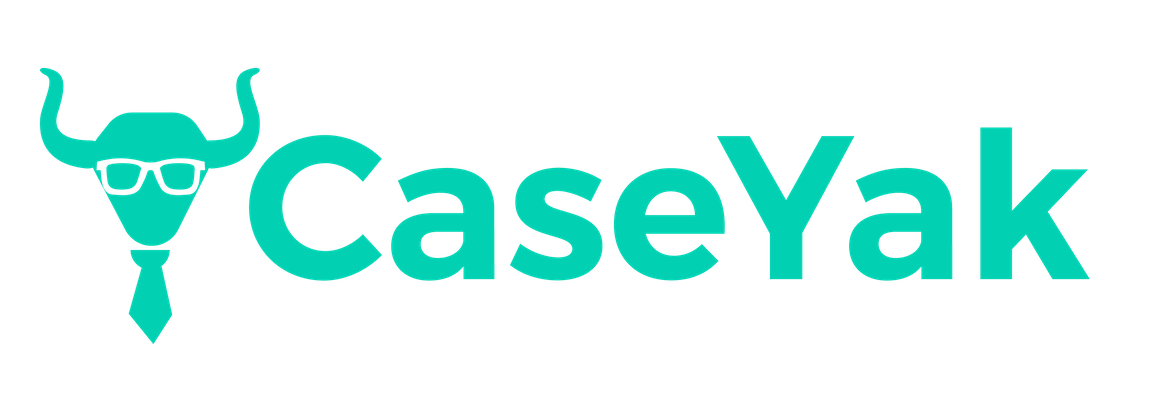Ethics in Legal Marketing: Avoid Ethical Pitfalls in Your Digital Marketing Campaigns

Legal marketing strategies continue to evolve due to technological innovation and changing consumer behaviors. While marketing tactics evolve quickly, the rules of professional conduct governing attorneys remain mostly static. Whether you're a legal marketing professional or an attorney who takes an active role in digital marketing, we hope this entry will refresh your knowledge of applicable rules and help you avoid some potential ethical pitfalls in legal marketing in our age of constant technological innovation. Please note that all discussion is in the context of the American Bar Associations Model Rules of Professional Conduct.
Create Marketing Copy with Applicable Rules in Mind - Beware of Misleading Statements
Aside from the "catch-all" Rule 8.4, which prohibits conduct involving dishonesty, fraud and deceit (which, of course, you should avoid no matter what in any marketing plan), there are two rules generally implicated in creating marketing copy. Model Rules 7.1 and 7.2 apply to all communications about a lawyer's services, whether it be direct communications, verbiage on your website, or ad copy.
Model Rule 7.1 provides:
A lawyer shall not make a false or misleading communication about the lawyer or the lawyer's services. A communication is false or misleading if it contains a material misrepresentation of fact or law, or omits a fact necessary to make the statement considered as a whole not materially misleading.
Model Rule 7.2 provides specific rules concerning such communications. Such rules address whom a lawyer may pay for recommending that lawyer's services, and the criteria for a lawyer identifying oneself as a "specialist" in a particular field of law.
As lawyers, you need to sell your services. The Model Rules acknowledge this reality. However, at the same time you must take extra care that "sales talk" does not run afoul of any ethical standards which exist to protect potential clients. Part of sales and marketing is highlighting your successes. But even truthful statements can land an attorney in hot water with state regulators if the statements are not properly framed and/or disclaimed.
Of course, false statements can and should be avoided under Rules 7.1, 7.2 and 8.4. But note that misleading truthful statements are prohibited by Rule 7.1. The comments to Rule 7.1 offer more guidance as to what comprises a "misleading" statement. In general, you need to watch out for statements that:
- create a false impression of the services a lawyer provides;
- lead to unjustified expectations on the part of the client; or
- make unsubstantiated claims about services or fees compared to those of other lawyers.
Disclaimers can and should be used where possible to ensure that no receipient of the communication will have an unintended interpretation thereof.
Again, word choice and framing is everything. Let's say, for example, a personal injury law firm website boasted:
Virtually all of our cases settle for higher than what the insurance company offers!
This could be construed as creating the expectation that the same results could be obtained for a new client without regard for the facts and law of those other cases. A better way to brag about this impressive achievement would be:
95% of our cases settle for higher than the insurance company's initial offer. DISCLAIMER: Every case is different and results may vary. The best source of information about your case is an attorney.
More specificity and disclaiming language is always better than vague sales talk.
Another area that can cause problems is discussion of rates. For competitive reasons, most law firms do not want to broadcast their rates via their website or advertisements. However, they might want to hint that their rates are competitive within their local market. A law firm needs to proceed with caution. Saying something like "competitive rates" is appropriately vague. However, avoid phrases like "lowest rates guaranteed!" You probably don't know whether you have the lowest rates in town, so this could be construed as misleading.
Generally, be cognizant of when "sales talk" crosses the line, and stop yourself well short of that line.
Lawyer Referral and Lead Generation Services
As part of their marketing plans, many lawyers utilize referral services. Use of these services is covered by Rule 7.2(b)(2), which provides, in part:
A lawyer shall not compensate, give or promise anything of value to a person for recommending the lawyer’s services except that a lawyer may . . . pay the usual charges of a legal service plan or a not-for-profit or qualified lawyer referral service . . .
Generally, non-profit referral services are provided by state bar associations or other trade groups. With respect to for-profit referral services, and while many such services are valuable and reliable, you should verify that your referral service is "qualified." as the rule defines it. Any ethical risk of using a non-qualified referral service falls to the attorney. The rules of professional responsibility in any given state regulate attorneys in that state. The power of enforcement authorities lies in their ability to take action against attorneys' licensure. Referral services (and any other third party vendor) are not licensed attorneys and thus escape the jurisdiction of such bodies.
So what makes a referral service "qualified"? The Model Rules say:
A qualified lawyer referral service is one that is approved by an appropriate regulatory authority as affording adequate protections for the public.
Each state, generally through its supreme court, sets out standards for referral services. The American Bar Association provides a framework for this as well. If you're considering using a referral services, ensure that it is qualified under your state's applicable rules.
Additionally, the comments to Rule 7.2 address "lead generators." A lawyer may pay others to generate client leads, with some caveats:
- The lead generator must not recommend the lawyer;
- Payment must be consistent with Rule 1.5(e) (addressing division of fees) and 5.4 (addressing professional independence of the lawyer);
- and all communications by the lead generator must be consistent with Rule 7.1.
Any lead generator you choose should have literature addressing ethical concerns. Ensure that they are checking their boxes when it comes to compliance because, at the end of the day, the consequences could fall on you as the attorney.
The Lesson: Be Purposeful and Cautious with Marketing Strategies
When marketing your law firm, especially with all the new tools to do so, it can be tempting to hurry through the copy and hastily retain professionals to generate leads and referrals. Resist the temptation to rush, and make sure you're taking the necessary steps to protect the licensure of yourself and/or the other attorneys in your firm.
When seeking leads or referrals, ensure that your vendors are compliant with applicable ethical rules. When drafting/approving marketing copy, ensure that statements do not have the potential to mislead and are properly disclaimed when necessary.
Please be advised that this is provided for general information purposes only. Nothing herein should be construed as legal advice
